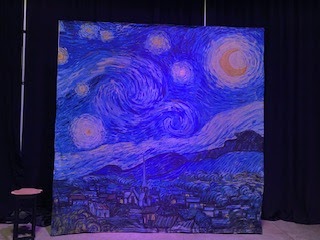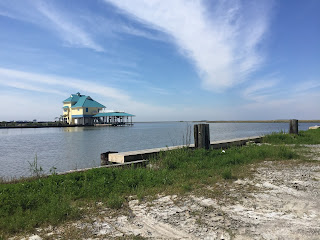Why a "community" matters, especially in later life
 |
| Friends and family members in 2018 attended an excellent basketball tournament in Des Moines; four colleges participated: Iowa, Iowa State, the University of Northern Iowa and Drake University. |
It was the morning of Valentine's Day and my husband Steve, and I, started to walk in Scott County Park, located just two miles from our home in rural Scott County, Iowa.
We had begun a two-mile loop when a woman in a car stopped us: She leaned out the driver's side window and handed us two bags of Valentine candies.
Startled, we stared at her as we did not know her. But she smiled and said, "I like that you are out here, walking!"
We did accept the candies and are eating them to this day!
That pleasant incident points to the importance of have a "community" in life. Communities are generally defined as a group of persons who share a common interest. Growing up, this is evident in school when one has dozens of classmates, all trying to succeed.
Later in life it -- arguably -- becomes even more important. Human beings don't live life in a tunnel, and most everyone enjoys the company of others.
In fact, it is relatively rare that a human lives in isolation. Complete isolation is certainly unhealthy, experts say.
One famous, isolated individual was Ted Kaczynski, the Unabomber. A math prodigy and domestic terrorist, he lived alone in rural Montana and mailed bombs from 1978 to 1995, killing three and injuring 23 people. He was arrested after his brother David read a long manifesto Ted wrote against industrialization in the Washington Post newspaper. He reported his suspicions to the FBI.
My grandfather, Bill Hebner, lived alone for many years after my grandmother died, but he made a point of connecting with friends in Minneapolis. He is one of my role models. He walked up to seven miles a day, having coffee, or lunch, with numerous buddies he'd made over the years. Grandpa died right before his 100th birthday.
According to research at Penn State University, the word "community" is a broad term to define groups of people, such as stakeholders, interest groups or citizen groups.
A community may be a geographic location (park, or school), a community of similar interests (such as workplace relationships) or a community of affiliation or identity, like a sports team or club.
Communities, in the case of the Bakers, include the folks who walk often at Scott County Park. We also have friends from Tipton and Wilton, Iowa, where each of us grew up. Finally there are several friends in our North Scott neighborhood, and of course, from our careers at the Quad-City Times newspaper.
I've gained a new community lately: Master Gardener candidates, taking instruction from Iowa State University Extension Service, Scott County.
 |
| A new walking trail is being built in Scott County Park. It will eventually surround Pride Lake. We plan to use it, of course! |



Comments
Post a Comment